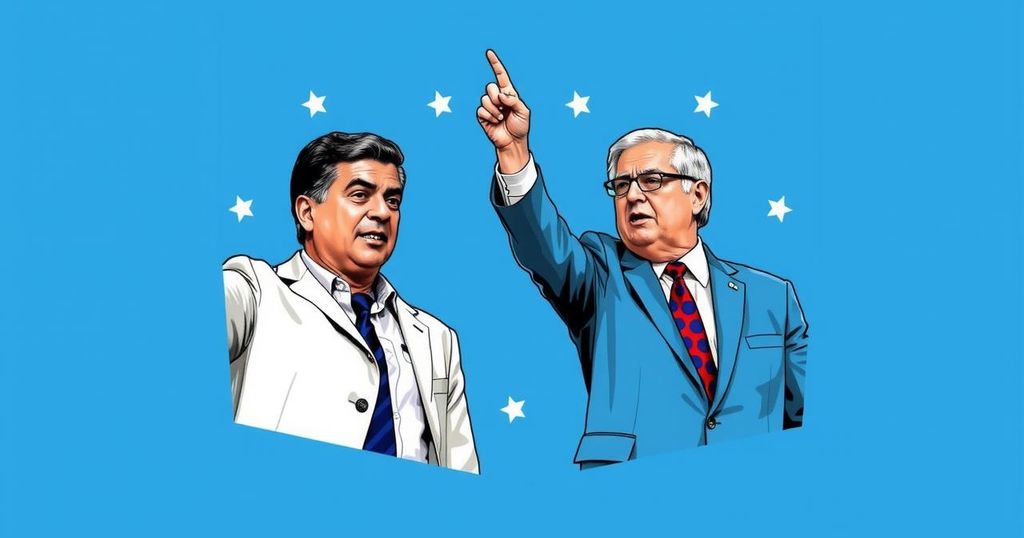Uruguay’s Presidential Runoff: A Tight Race Between Moderates

Uruguay is set for a tightly contested presidential runoff on Sunday between Yamandu Orsi of the Broad Front and conservative Alvaro Delgado, supported by the Colorado Party. Final polls show a potential gap of fewer than 25,000 votes. The election underscores Uruguay’s relatively harmonious political climate, contrasted with regional polarization, as candidates vie for undecided voters amid economic pressures.
On Sunday, voters in Uruguay, a country renowned for its peaceful charm and modern policies, will participate in a closely contested presidential runoff election. This race features opposition candidate Yamandu Orsi from the center-left, who previously garnered 43.9% of votes, and his adversary Alvaro Delgado, representing the continuity conservative faction backed by the Colorado Party.
Final opinion polls hint at an exceptionally tight contest, potentially separating the two frontrunners by less than 25,000 votes. Unlike the polarized political landscapes seen in neighboring South American countries, Uruguay maintains a relatively harmonious political climate, with both conservative and liberal factions possessing overlapping agendas.
Polling stations are set to open at 8 a.m. local time and close at 7:30 p.m., with preliminary results expected shortly thereafter. Orsi has focused on assuring the public that his governance would not initiate drastic changes, while Delgado seeks to leverage the popularity of outgoing President Lacalle Pou, who is ineligible for re-election. Neither candidate possesses an absolute majority in the lower house, although Orsi’s Broad Front claims a slight edge in the Senate.
Both contenders aim to sway undecided votes, particularly those from smaller parties and individuals who abstained during the first round. However, recent campaign efforts, including a televised debate on November 17, appear to have had minimal influence on voter sentiment as many remain unsure of their choices. As the year concludes, questions loom over whether Uruguay will defy the global trend of incumbents suffering electoral setbacks, particularly amid economic pressures affecting voters. Analysts predict that a strong domestic economy may bolster Delgado’s chances as indications suggest that there is little demand for significant political change at this juncture.
This article provides an overview of the impending presidential runoff election in Uruguay, highlighting the unique political landscape of the country, which contrasts sharply with the tumultuous environments in Argentina, Brazil, and Mexico. In this election, candidates Yamandu Orsi and Alvaro Delgado represent opposing yet overlapping political ideologies. Understanding this backdrop is essential for interpreting the electoral dynamics and potential voter behavior, especially in light of recent economic trends and political patterns in the region.
The upcoming presidential runoff in Uruguay represents a significant moment in the nation’s political landscape, where candidates Yamandu Orsi and Alvaro Delgado present contrasting visions yet operate within a similar moderate framework. With a close electoral race anticipated, and despite uncertainties among voters, the outcome may ultimately reflect broader global trends in governance and public sentiment. The stability of the Uruguayan economy may also play a crucial role in influencing voter decisions in these final hours before the election.
Original Source: www.arabnews.com








